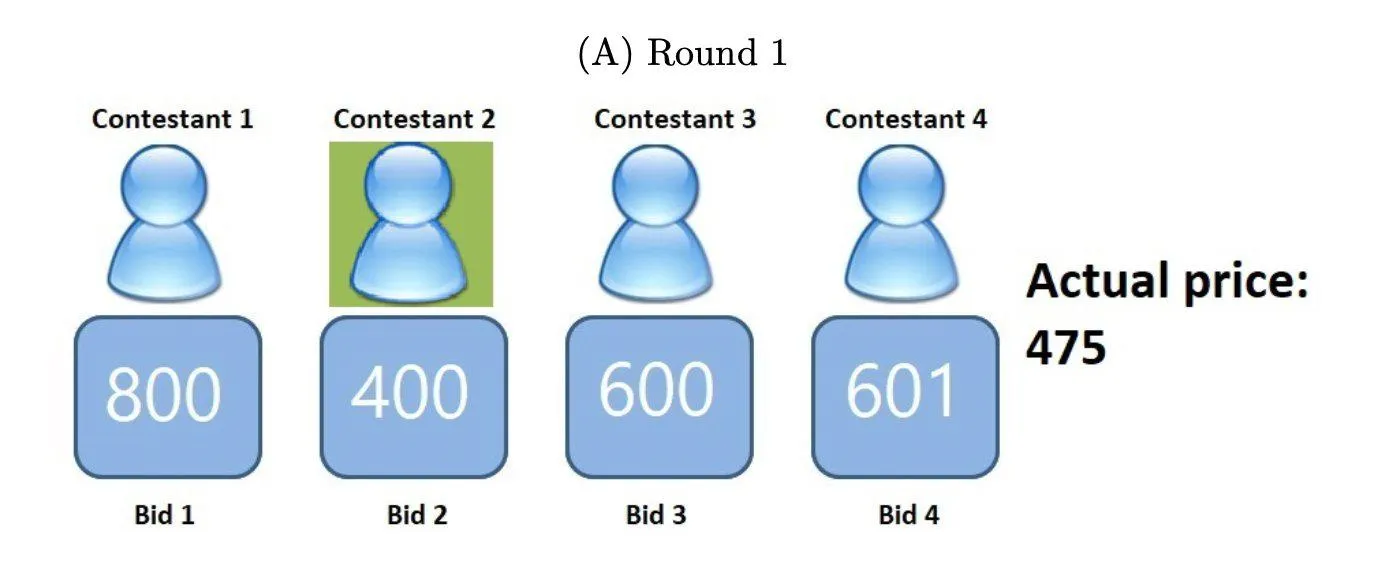01 November 2023
Academics turn to TV gameshow for insights into gender bias
What can a popular TV gameshow reveal about inherent biases that have the potential to affect everything from employment decisions to parole hearings?

The choices made by contestants on a popular gameshow might be easy to overlook in isolation but a group of researchers believe the show provides a uniquely well-suited environment to study the existence and mechanisms of gender favouritism. Hence, patterns revealed in thousands of interactions across decades could shed light on the inherent preferences we hold towards our own gender.
And those preferences, researchers argue, could explain why women face obstacles in typically male-dominated sectors of society – from institutions to the workplace.
In a new research paper published in the Economic Journal, academics scrutinised more than 11,000 games of One Bid from TV show The Price is Right, covering episodes from 1972 to 2021.
In One Bid, four contestants take turns to guess the retail price of an item with the goal of bidding closest to the item’s actual price without exceeding it. In the game, the fourth bidder maximises their chance to win the game if they overbid another opponent by exactly $1.

Researchers refer to these $1 overbids as cutoffs because they effectively cut off any chance of winning for the opponent whose bid they are exceeding by $1. Despite the strategic advantage of cutoffs, however, many fourth bidders were observed not to make such bids. By refraining from using cutoff bids, contestants potentially forego thousands of dollars of prize money.
The researchers analysed whether cutoff bids could be predicted by the gender match between the fourth bidder and the target opponent.
Examining 11,016 of examples of the game, the researchers found the overall cutoff rate was about 48 per cent, but that the likelihood of a cutoff bid increased by 10 per cent when the perceived leader was of the opposite gender to the person making the fourth bid.
Dr Bouke Klein Teeselink, a member of the research team, said: “Analyses of more than 11,000 One Bid rounds show that both male and female contestants display favouritism towards their own gender.
“Fourth bidders are more likely to cut off the person perceived to be in the lead if that person is of the opposite gender rather than the same gender. Cutoffs are the optimal strategy no matter the gender of the opponent, and any reluctance to cut off same-gender opponents can be considered a favour towards members of their own gender.
“Thus, our data suggest that people may hold strong discriminatory tastes that can outweigh substantial monetary stakes for being impartial. Additionally, and contrary to many prior studies, our data show no evidence for gender stereotypes in beliefs, neither among males nor females.”
The researchers added the results observed in the gameshow setting, which are played out in front of live audiences as well as in front of millions of viewers at home, are likely evidence of strong biases that could also be at play in less public settings such as job interviews or even parole hearings.
Dr Klein Teeselink added: “That we found evidence of taste-based discrimination in the conditions on the TV show suggests that such biases are present and powerful, and might even be stronger in more anonymous settings such as hiring decisions and job evaluations.
“Because participants make choices very quickly, usually within a few seconds of the preceding bids, we acknowledge that their choices may rely more on fast, implicit tendencies than on careful deliberation. Yet, many important real-life decisions such as granting parole or stop-and-frisk are also fast-paced, and our results might inform behaviour in such settings.”
The research paper, Taste-Based Gender Favouritism in High Stakes Decisions: Evidence from The Price Is Right, was co-authored by Dr Pavel Atanasov (IE University), Dr Jason D Dana (Yale School of Management) and Dr Klein Teeselink (King’s College London).
Read more...
You can read the paper in full here.

